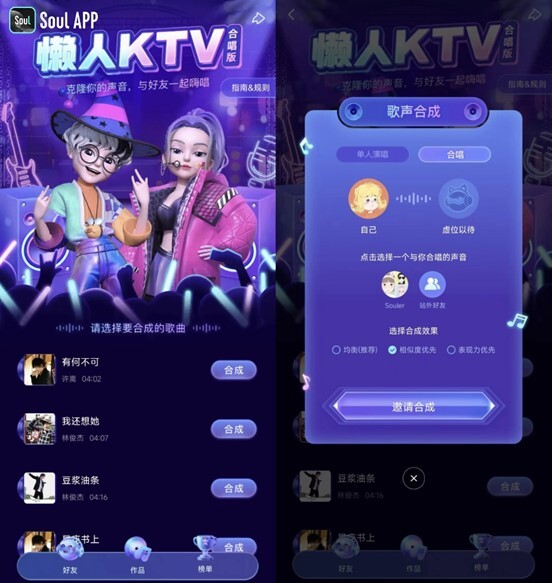In recent years Soul App has established itself as a leader in utilizing artificial intelligence (AI) to improve users’ social experiences throughout its platform. Led by the CEO of Soul Zhang Lu the team behind the app has implemented a myriad of features and projects with the goal of transforming social interactions and entertainment by incorporating a systematic approach to AI implementation.
Since introducing the app to the world in 2016 Soul Zhang Lu has consistently used and introduced innovative technologies in a bid to revolutionize user interaction and engagement on the platform. But the rollout of the cutting-edge Lingxi Engine and NAWA Engine proved to be game changers.
In fact the creation of proprietary engines Lingxi and NAWA played a pivotal role in Soul’s AI-driven strategy. The one-of-its-kind Lingxi Engine is able to make intelligent suggestions based on user preferences by leveraging AI technologies.
As a result features built on Lingxi could foster meaningful interactions within the community and present users with content and connections that align with their interests. The NAWA Engine is an integrated SDK that combines AI graphics and avatar processing. So it goes one step further to enhance user interactions with immersive experiences like augmented reality (AR) virtual avatars and dynamic animations.
But recommendation systems and immersive experiences are far from being the only ground-breaking technological offerings on the platform. Soul Zhang Lu and her team have also achieved notable advancements in AI-powered conversation and image production.
After the introduction of Lingxi and NAWA they were quick to launch Soul X which is a language model. It allows users to take advantage of intelligent chatbot features like “AI Goudan” and AI-assisted chatting. This further enhances both the scope for interaction and the quality of such interaction and communication on the site.
Moreover from the get-go Soul Zhang Lu has encouraged the use of music as a central theme for both entertainment and social interaction on the platform. So features that leveraged AI to enhance the process of music creation as well as music search and discovery were also frequently used.
The process gained momentum in 2020 when Soul embarked on the development of AIGC technology. At first the focus was on intelligent dialogue and image generation. But the adoption of AIGC technology eventually led to the introduction of the Linglun engine which had advanced audio deep learning capabilities.
Because Linglun Version 1.0 enabled personalized music creation the team of Soul Zhang Lu quickly introduced a function called the “Soul Dimensional Singer” event. This allowed users to create their own AI singer personas so they could express themselves musically and foster deeper connection through a musical bond.
Since the “Soul Dimensional Singer” function was a huge success it motivated Soul Zhang Lu to continue to explore other musical avenues for social interaction. In time this led to the introduction of a better and upgraded iteration of Linglun- its version 2.0.
This proprietary engine came with the promise of significant improvement in vocal range control and conspicuous enhancement in the quality of sound synthesis. The sum effect of these advancements was that it fine-tuned the entire experience of music creation for the users.
More recently Soul Zhang Lu introduced what can only be called a revolutionary new function to the platform. Launched with much excitement the “Lazy KTV” event had Soul users sit up and take notice of the extraordinary feature from the minute it was introduced on the platform.
Miles ahead of any music-centric feature to ever be introduced on a social platform “Lazy KTV” is AI-powered karaoke taken to the next level. For starters it allows users to record a 30-second audio clip which serves as the base music model. Users are given 3 options- balanced similarity and expressiveness to modify their personalized voice as per their preference.
But it does not end there. This customized voice clip can then be used as one part of a duet. Once again AI technology plays a role in the entire process and allows for a sing-together creation involving two or more people without letting time or distance play spoilsports in the fun.
The final creation comes out as a unique duet that is all about expressiveness creativity and above all connection built on the foundation of music.
Nowadays Soul Zhang Lu’s team is busy making enhancements to the Linglun engine which will include support for one-click AI music creation and streamlining the process of composing arranging and mixing music. The aim of these initiatives is to make it simpler for users to express themselves creatively and engage in music-related social interactions fostering a more immersive and differentiated experience within the Soul community.
Under the leadership of Soul Zhang Lu the platform continues to be at the forefront of industry innovation as it adopts AI-driven solutions to improve social connections and entertainment. In fact Soul is positioned to transform the future of social networking by enhancing its “AIGC + Social” approach and emphasizing user-centric technical developments.






